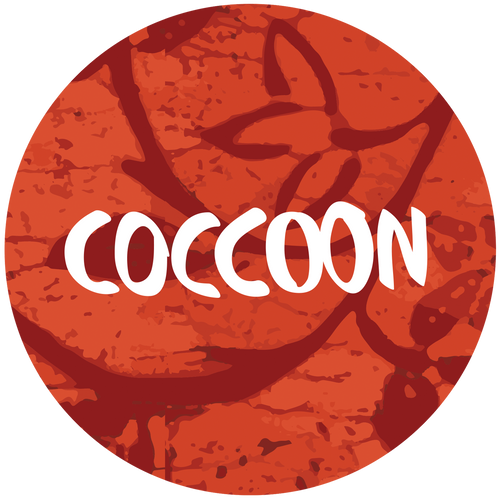In a world that encourages us to buy more every day, embarking on a journey towards minimalism and sustainability may seem counterintuitive.
Yet, it is precisely from this choice that a lighter, more conscious and meaningful way of living can be born.
What is minimalism and why is it linked to sustainability?
Minimalism is a lifestyle that starts from radically rethinking the organization of one's existence.
It is a reorganization on a practical and mental level , and it affects all aspects of a person's life: home, fashion, cosmetics, cooking, shopping, nutrition, travel, transportation, consumption, education ...
Minimalism is not just about getting rid of the superfluous, but it is also a way to reconnect with what really matters .
Reducing consumption isn't a sacrifice, but an opportunity: fewer items, less waste, less impact.
This approach naturally marries with sustainability , because it pushes us to:
- consume with caution,
- choose durable products,
- enhance what we already have.

Being minimalists in the family , creating a community around you with these principles, and feeling comfortable in your daily choices, is a wonderful adventure , also for the education of children who, by nature, are extremely simple and creative and therefore benefit immensely from this 'simplified' form of the world.
The first steps to starting a lighter lifestyle
For us adults, it's a slower process, a transition that, to be effective and definitive, must be pleasantly rooted in our daily lives and become an integral part of our being . We always start imperfectly, and there's always room for improvement and learning. There's no need to revolutionize everything in one day. Minimalism is built one step at a time .
- The first step is to be open to change – which often scares us even to mention it!
- Kindness and the search for beauty , in its most intimate and pure meaning, are the second step .
Beauty, in fact, is harmony for the senses and the spirit ; it is the nature that surrounds us, along with the people; it is the entire world and its respect. A delicate and imperfect balance that we can gently protect and that will make us feel good.
Here, more practically, is where to start:
- Declutter: free up physical and emotional space (read our article on how to create a capsule wardrobe )
- Reduce impulse purchases: ask yourself “Do I really need this?”
- Start keeping track of what you use and what you don't.
- Embrace quality over quantity.
- Replace disposable products with reusable alternatives.
Emotional minimalism: making space inside too
Minimalism isn't just about objects, but also about managing time, relationships, and emotions . It 's a respectful path toward the planet and others, embracing a green lifestyle inspired by Zen philosophy . This more ecological and empathetic way of living certainly leads to happiness .
Some examples:
-
Slow down: Not everything has to be productive.
-
Log out of social media if it's causing you stress (read our article on why we chose to say goodbye to social media )
-
Spend time doing what makes you feel good.
Carving out moments of presence and silence is a revolutionary act in a noisy world.
Change starts with you
Every small gesture counts. Starting with a minimalist and sustainable approach is a concrete way to:
- reduce our environmental impact,
- inspire those around us,
- create a healthier relationship with consumption.
Remember: you are not alone.
Every conscious choice you make contributes to collective change.
Focus every day on reducing consumption to the bare minimum that has the least impact on the environment. Learn to reject what is truly unnecessary or polluting, to reuse everything that has a long life, and to recycle what can be transformed. Conserve , cultivate creativity, and, if possible, donate .
The daily mantra we propose is well represented by the cover photo of this article and we can summarize it in this list:
- Refuse (avoid the superfluous and eliminate the use of single-use plastic and other pollutants)
- Reduce ( lower consumption of any kind)
- Reuse
- Recycle (possibly commit to composting)
- Preserve
- Donate (get rid of what you no longer use and make someone else happy)
- Grow (e.g., urban garden, discover and participate in urban reforestation projects)
- Cuisine (do you prefer a vegetarian or vegan diet - read our article about Ikigai and the Japanese diet )
- Invent (prefer creative activities with low environmental impact - read our article on how to organize a green wedding )
- Respect ( open your mind and heart, listen, connect with people and nature. Love!)
- Cycle (or walk or use public transport, but avoid travelling by car)
- Bulk (buy products in bulk and drink tap water)
- Seasonal (choose fresh produce)
- Second hand (prefer used)
- Artisanal (enhances craftsmanship over mass distribution)
- Eco cosmetics (switch to concentrated and multifunctional solid cosmetics)
- Eco-friendly cleaning (read our article on how to clean with vinegar and how to do your laundry more sustainably )
We will never be perfect in our way of living sustainably , but in the part of the world where we were fortunate enough to be born, we have the privilege of being able to choose . We are free . And with our choices, we can positively influence others and improve the world today and in the future .
There is no time to waste .
If you're ready to live more lightly, start your journey to a minimalist lifestyle today!
Do you have any questions or ideas? Write to us in online chat or through the contact form or leave us a comment below.

Back to News